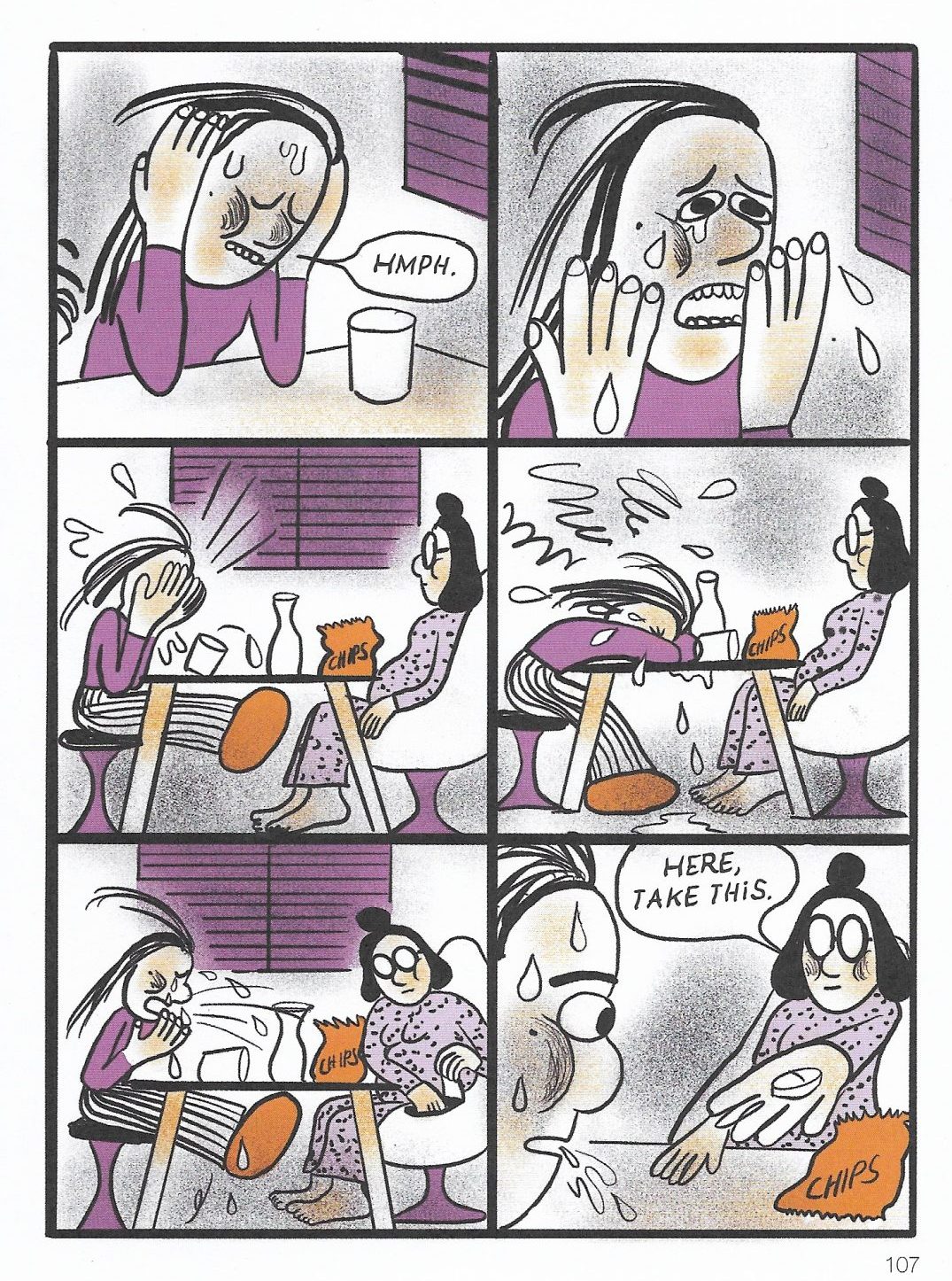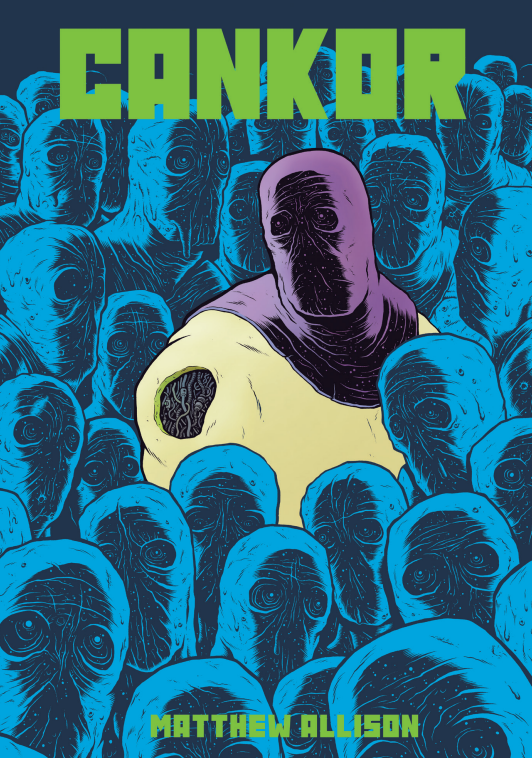I don’t think it’s some sort of earth-shaking revelation to note the way therapists are portrayed in most media tends to be… on the negative side. Chalk it up perhaps to a general mistrust of “the talking cure” or the notion that mental health isn’t real (something I strongly suspect many Americans believe), but there are countless movies, books, etc., where analysts of one stripe or another are either fools (Arrested Development, the new Apple show Shrinking) or just plain villains (The Matrix Resurrections, The Silence of the Lambs). And comic books are certainly not immune to this sort of typecasting. Remind me to tell you about The Fun Family sometime.
All of which brings us to Work-Life Balance, the new graphic novel by German cartoonist Aisha Franz. The book focuses on three people that, as the title suggests, are having trouble with their careers to the point where they either need or are required to seek out a therapist.
Unfortunately, instead of someone competent, they end up with Dr. Sharifi. Perpetually stone-faced, constantly smoking, and dressed from a closet of rather gaudy polka-dotted onesies, the pot-bellied (or maybe pregnant, it’s hard to tell) Dr. Sharifi seems to be more interested in her own well-being than that of her patients. She seems more inclined to do yoga and listen to ASMR tapes of keyboard typing than her job. At one point, she farts very loudly in front of a patient, without so much as an “excuse me.” (I feel compelled to point out here that Sharifi looks quite a bit like Franz, or at least the way she draws herself in the self-portrait displayed in the endpapers. Make of that what you will.)
And the patients could use some help. Anita is a sculptor who is frustrated to the point of distraction that her work isn’t garnering attention beyond her Etsy store - certainly not the kind of art world praise her studio-mate, who has a big exhibition coming up, is getting. Then there’s the intensely lonely Sandra, who has been sexually harassing a co-worker and is in complete denial about their abusive behavior. Meanwhile, Dex is a programmer who has had his work and ideas stolen from the same company that employs Sandra, and is forced to go back to delivering pizzas in order to pay the rent.
While trying to navigate these problems, the loosely-connected trio are surrounded by shallow, would-be “wellness” remedies–Marie Kondo on TV, the YouTube videos Sandra makes on the side, a virtual therapy space Dex visits, Dr. Sharifi herself–none of which do anything to soothe the anxieties and crushing dehumanization of their working lives. If anything, the characters are reminded of how much of a struggle it is for others one step down on the socio-economic ladder (Anita: “I went to art school!” Barista: “Oh yeah? Me too!”).
Franz’s overall point is pretty clear: none of the allegedly therapeutic remedies society proffers will genuinely help solve the problems capitalism has created, whether you're working in an office or trying to navigate the art world. The only true answer, at least in the case of Dex, seems to be to attack the system directly. Franz manages to skewer the modern high-tech workplace rather well, with Sandra’s office being a “shoe-free” zone where everyone dons comfy slippers and sits in enveloping bean bag chairs, spouting jargon while treating each other horribly. (It’s worth noting that the person who shafts Dex is also the subject of Sandra’s unwanted affections, victims preying upon victims.)
In addition, Franz’s loose, cartoony art style fits the material perfectly. Most of her characters are simple oval heads sitting atop a boxy frame with a lone curlicue or two to signify hair. Squiggles float or jut out from people’s expressions depending on their mood. The seemingly dashed-off linework (I’m sure it took considerable effort to appear that way) underscores the cast’s frenzied emotional states.
In focusing on the themes driving Work-Life Balance, I suppose I’ve made it sound a bit like a self-serious drama. It’s not. In fact, Franz fills the books with pitch-perfect humor, not just the chairs and slippers, but the way Sandra’s victim, for example, in the midst of a bit of sexual role-play, informs her that the photocopier she’s complaining about is actually a Risograph. “R-I-S-O-G-RRR-AA-PH,” he says phonetically, while not wearing any pants.
I’m not sure I completely agree with Franz’s attitude towards therapy and self-help (“better to figure things out on your own” doesn’t seem to be the wisest advice), but Work-Life Balance remains a funny and pointed satire of modern work culture. The contents of Franz’s last book, Shit is Real, left my brain as soon as I put it down. This one is going to stick with me for considerably longer than that.













